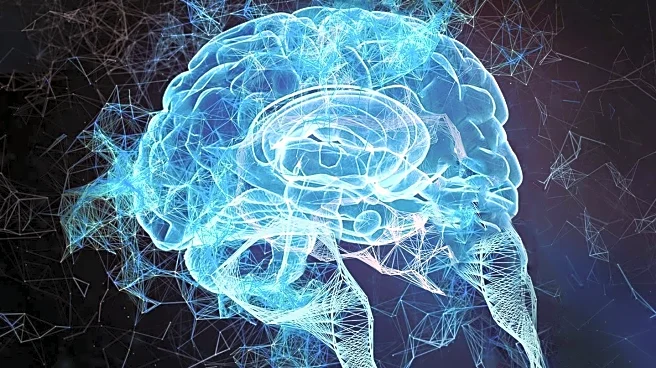What is the story about?
What's Happening?
A study conducted at University College London has found that the brain retains the map of a lost limb even after amputation. Researchers performed MRI scans on individuals before and after amputation, focusing on the somatosensory cortex. The study challenges previous beliefs that the brain reorganizes dramatically after losing sensory input from a limb. Instead, the brain continues to maintain the representation of the missing limb, which may explain the phenomenon of phantom limb sensations.
Why It's Important?
This research has significant implications for the development of brain-computer interfaces and prosthetics. By understanding that the brain retains the map of a lost limb, scientists can design more effective prosthetic devices that interact with these existing neural circuits. The findings also offer insights into managing phantom limb pain, suggesting that therapies could focus on maintaining or modifying the brain's existing map rather than attempting to reorganize it. This study contributes to the understanding of brain plasticity and its role in sensory processing.















